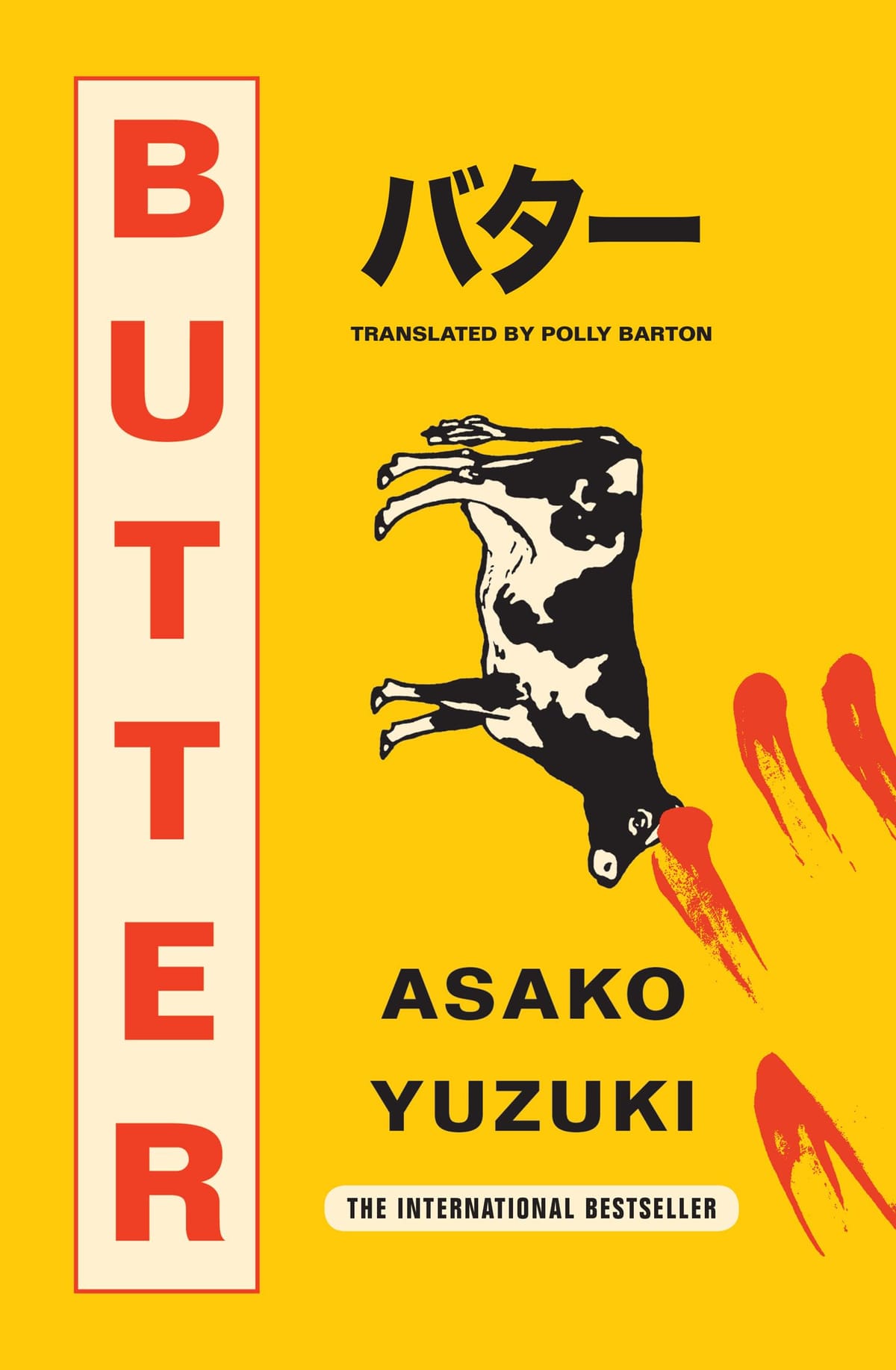A Review of Butter By Asako Yuzuki
A spoiler free book review of the novel Butter by Asako Yuzuki

(A spoiler free review)
A rich, delectable way to spend your day, I’m talking about Butter: A Novel of Food and Murder by Asako Yuzuki.
Rika, a rising journalist, begins correspondence with an incarcerated woman, Manako Kajii, who’s accused of murdering a few of her ex-boyfriends*. Initially motivated by professional ambitions, Rika builds this relationship with Kajii in hopes of landing an interview that will allow her to move up the ranks at her magazine and finally get her the recognition she believes she always deserved. But very quickly those ambitions become derailed by her devotion to the alleged killer.
Manko Kajii is boisterous, passionate about food, and isn’t afraid to lambast anyone she perceives has slighted her. Her charisma coupled with the constant media attention transforms her into somewhat of a mythical figure, allowing her to cultivate a cohort of young, ardent supporters, including Rika herself. Kajii shares with her new disciple the philosophies she abides by, sends her on food journeys, and even manipulates Rika’s friends against her. The twisted relationship ultimately jeopardizes Rika as she soon finds herself at a crossroads, questioning how devoted she really is to this woman.
But along the way, while Rika is sampling both casual and fine dining cuisine at the behest of this cult-like figure, we’re blessed with some of the most immaculate depictions of the Japanese scene. The writing is both appetizing, yet restrained enough to leave you wanting more. I had to put down the book at several points because my stomach rumbled too loudly for me to focus.
It’s been my experience that when writers talk about food in their novels, they often approach it from an angle of insecurity, like they have to focus on the process, measurements, etc… to prove that they know how to cook. Far too often this cookbook, scientific style of writing leaves me unsatiated in the worst ways. Food writing (at least the kind I enjoy most) should be tantalizing, so much so that I should be asking myself why I’m reading when I could be eating. I don’t want to be educated, I want to be excavated, carved out and yearning for more. Cookbooks, non-fiction, science can teach me how to cook, but novels, satiating prose, should give me a reason to.
For instance, here’s the scene where Rika is making a simple dish (butter, rice, soy sauce), but with a high end french (Echire) butter.
The first thing Rika felt was a strange breeze emanating from the back of her throat. The cold butter first met the roof of her mouth with a chilly sensation, contrasting with the steaming rice in both texture and temperature. The cool butter clashed against her teeth and she felt its soft texture right down into their roots. Soon enough, just as Kajii had said, the melted butter began to surge through the individual grains of rice. It was a taste that could only be described as golden. A shining golden wave, with an astounding depth of flavor and a faint yet full and rounded aroma, wrapped itself around the rice and washed Rika’s body far away.
It was, indeed, a lot like falling. Rika stared down intently at the bowl of rice with butter and soy sauce and let out a long sigh, her breath rich and milky.
Even as a lactose intolerant person, I can’t help but wonder — where the hell can I get this butter?
Throughout the story we get many more delicious vignettes such as this. Post-coital midnight ramen under a train station, a thanksgiving dinner prepared in a Japanese style, beef bourguignon. And while the novel does an excellent job of whetting an appetite, I wouldn’t be writing about it if that’s all it did. Escapist food writing is certainly alluring, but I believe our present moment certainly demands more from an artist. Asako Yuzuki also engages the larger misogynistic values inherent in society through the lens of this journalist whose body (and by extension her values) are always open for public debate.
As Rika cooks more of the recipes suggested by Manako Kajii, she slowly starts to gain a few pounds, but even the slightest amount of weight is seen as taboo. She finds herself on the other end of constant criticism from her friends, coworkers, and even her own boss. Professionalism be damned. It’s only when she reveals that she’s started eating to build rapport with the alleged murderer that others start to accept the weight she’s put on. Asako Yuzuki demonstrates the many layers of humiliation a woman such as Rika, must endure and by the end Rika is sufficiently demoralized that she has another thing to worry about, that her body has become a canvas onto which others can paint their bankrupt moralities, and although she doesn’t quite agree with the mass murderer, she kinda starts to understand why she did what she did.
Butter reminds me of another novel I read recently, Hot Springs Drive, in how it handles violence from a structural lens. True crime mania has our country in a chokehold with folks clamoring for the next juicy detail about these “misunderstood” serial killers. But these two novels deftly pushback against this sensationalized, commoditized form of entertainment by giving a voice to the folks in the peripherals. They don’t paint simple villains that we can cathartically point to and laugh at, no, they instead force us to engage with structural failings, and larger questions about how we treat people, and how we construct a society ripe for such profound acts of violence. And although we don’t hold the blade, at the end we must look in the mirror and ask ourselves how we too have become complicit.
*The story is loosely inspired by a real murder case, that you can read about here.